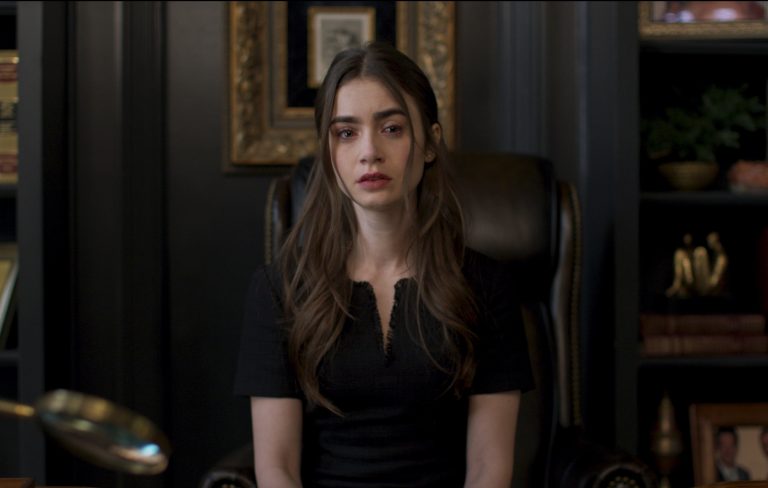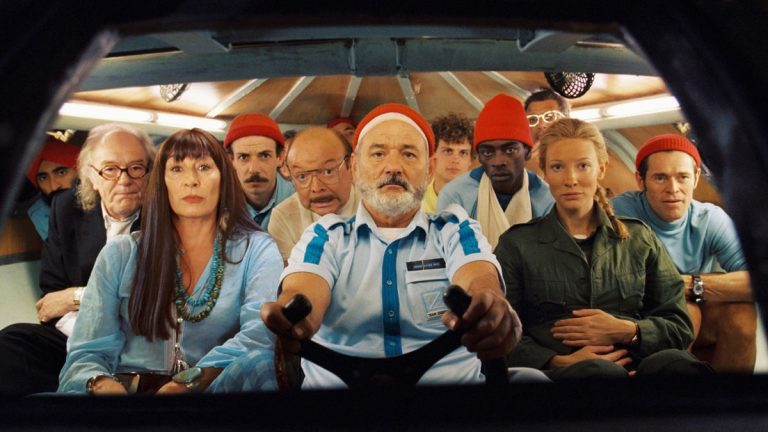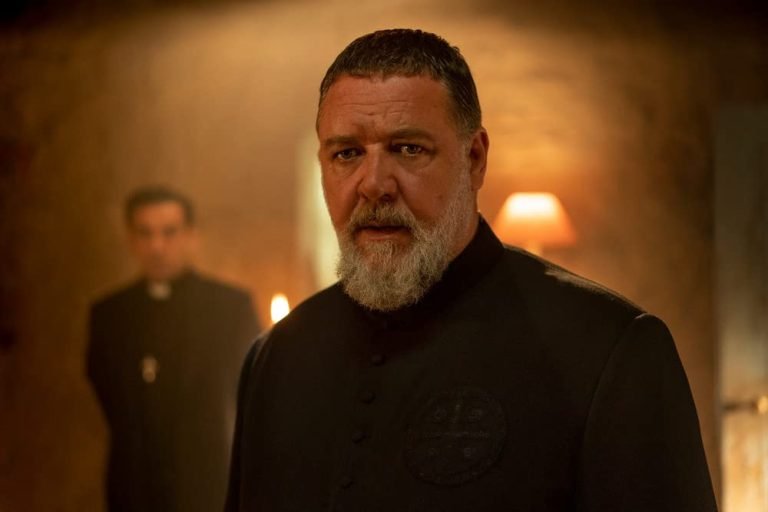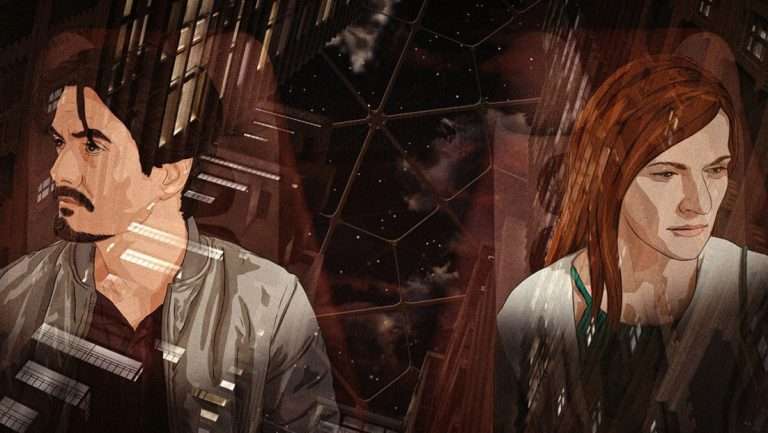Emily (2022) is a wish-fulfillment of sorts. Little is known of the beloved novelist in question. Anything we do know comes from the accounts of her sister Charlotte Bronte who herself has mentioned the need for a translator to stand between her sister and the world. Actor-turned-director Frances O’Connor takes matters into her own hand when it comes to depicting the unfairly short life of the author of Wuthering Heights. Emily is an imaginative one at best if it even should be called a biopic–but it is a love letter to Emily Bronte. It scarcely comes close to what her life might have been like and instead, it is a dreamy celebration that the novelist herself perhaps would have wished for.
O’Connor’s work in the adaptation of Austen’s Mansfield Park is likely what allowed her the gateway to a world that carries the tone of fantasy but was once real. At least that is the style that’s prevalent in the writer-director’s feature debut. Emily is as modern as O’Connor’s imagination could go without running the risk of not making sense. The author’s reclusive nature finds a more 21st-century sensibility and understanding in Emma Mackey’s likeness. O’Connor doesn’t completely give in to the theories about Emily Bronte being autistic but explores the individualities that are mingled with her difficulties of being what was expected of her at a period of ignorance and fear. O’Connor’s Emily is a brave misfit. She’s a rebel with poetry in her heart and the freedom of desire as her guide.
What may have led the author to write Wuthering Heights becomes a story where the author herself is imagined in the frame of Catherine Earnshaw, and her romance with the young curate is not too withdrawn from Catherine’s love for Heathcliff. O’Connor’s film is an indirect, albeit intended manner of reimagining Emily Bronte’s life in the themes of her celebrated work. Here, Emily is deeply sensual–she is strangely courageous–it is as though she is allowed to be everything O’Connor wishes she was.
Emily (2022) Plot Summary & Movie Synopsis:
Home in the wilderness of moody Northern England, the middle sister of the Bronte family, Emily (Emma Mackey), tries to unshackle herself from playing the part of an understudy to her more traditionally acceptable sister Charlotte (Alexandra Dowling). Conservative in her ways and following the laid-out pattern of studying to become a teacher, Charlotte is the vision of pride and prudence that their father, reverend Patrick Bronte (Adrian Dunbar) wishes upon Emily. “The strange one” as addressed by the villagers, Emily tries and fails to fall into the pattern of doing what’s expected and saying what would be considered proper.
Even the sermon romanticizing God and finding him in the patters of rain, given by the charming new curate William Weightman (Oliver Jackson-Cohen), is vapid for Emily. It is too pretentious and shallow for the girl who really does come alive as the weather of Haworth changes like her mood. She survives through the stories she makes up in her recluse, however odd they may be. When one of her imaginations comes alive under the mask that was given to her father by her late mother, Emily’s wildness finds a safe release in the cradle of her siblings’ grief.
Brought close by her father’s wish that she learns French from William, the two bicker in the most passive-aggressive ways as Emily isn’t one to follow his blind faith in God. But her candor and “freedom in thought” are the very things that draw William to her and make him stray from the path of God to protect her secrets. Love happens, despite Emily’s wayward brother Barnwell (Fionn Whitehead) not blessing the union with his approval.
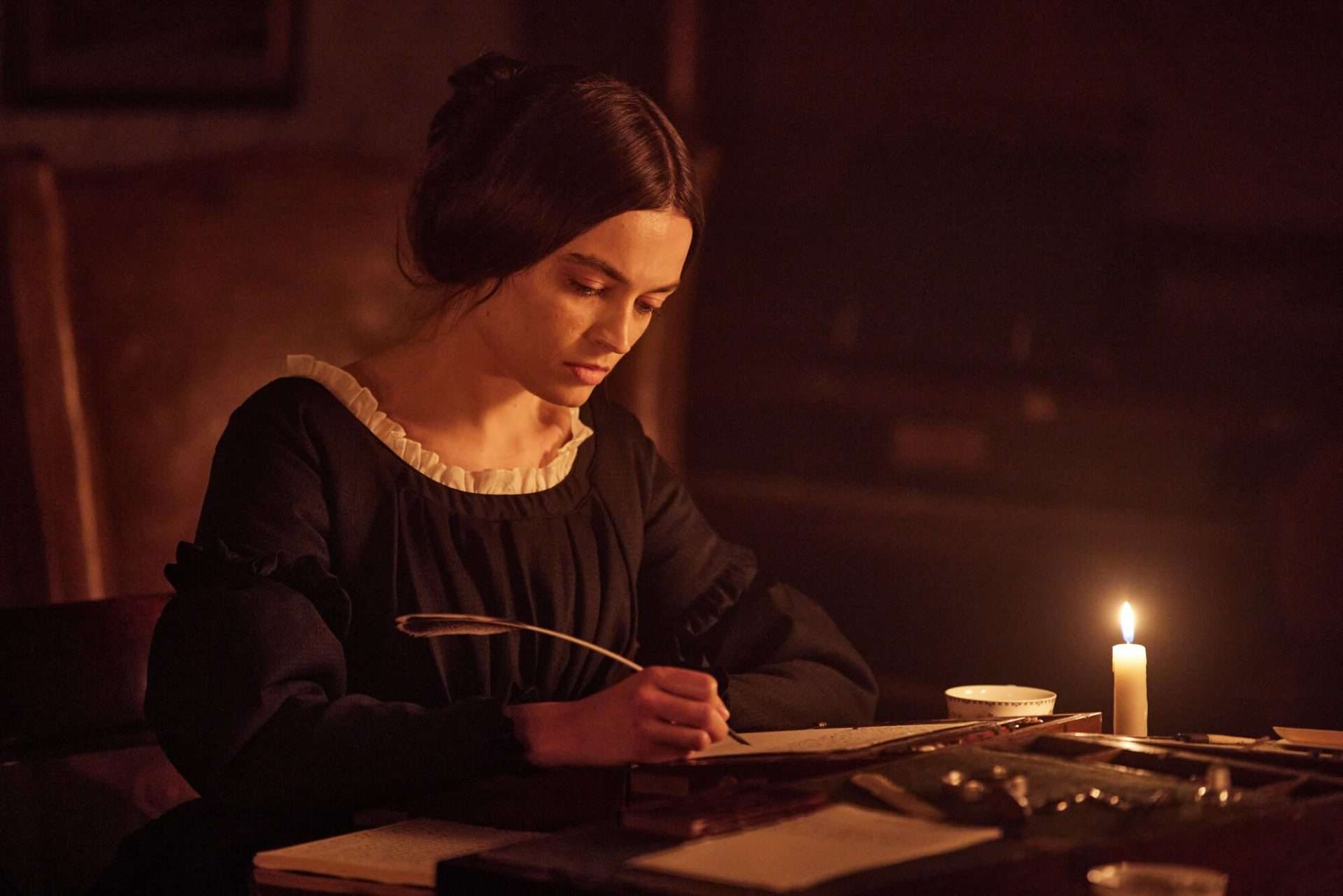
Barnwell is the only friend that Emily has. Running, screaming, and swaying through the wilderness under in the influence of opium, the two siblings find home within one another. Granted the influence isn’t without the threat of self-destruction, Emily and Barnwell also thrive in the inspirations that find comfort in the refuge of their loving relationship. It also breaks her out of her fear of expression and results in the bold poem that ignites fire within William.
Immersed within her sexual awakening that comes in the arms of the sacred curate, Emily lets herself flow with the wild air of the moor accompanying her every step. And like the changing weather, the fate of her love also changes right in front of her eyes–yet without closure. William turns his back on her and accuses her of the very things that he liked about her in the first place. Turned cold from the yearning of her shattered heart, Emily stops writing and decides to go with her sister to Brussels. The letter that William left for her with Barnwell, remains in her brother’s secret that he feels is for her own good.
O’Connor’s fictionalized biopic Emily (2022) is of feverish passion and sensuality with the turbulence of traditional societal expectations. It is as though the wild, vast moors with sudden rains and dampness and the immediate sunny change, travel with Emily as she aspires to overcome everything that stops her from pursuing her wishes. The director’s imagined Emily is as smart as she is brave. She is everything her admirers would imagine her to be–and that is exactly how O’Connor sees her in her film.
There is barely any historical truth in this 2022 version of Emily. If you’re looking for any truth in it, you might as well turn away now. If Phoebe Waller-Bridge could turn to the camera and say “This is a love story” for O’Connor’s Emily, she would do so. And it is in fact just that–a love story. But not just of Emily and William. Not even of the incredible bond she shares with her incessantly inebriated brother Branwell. It is Emily’s self-love that is celebrated in this magnificent period drama. And that too with Emma Mackey’s striking eyes looking straight into the unstable vastness of greens–with the pupils dilated with opium–giving you a look straight into the intoxicating mysticism of her soul. And who could blame O’Connor for taking her liberties? Who could say that the fascinating mind that created the timeless complexities of Wuthering Heights did not experience some of it herself?
Although historically there may have been some shared tenderness between William and the youngest Bronte sister, Anne (played by Amelia Gething in the movie); O’Connor forms an incredibly convincing romance between the religious man and the rebellious future author. Oliver Jackson Cohen gives everything to his questionable and flawed romantic hero that can not keep his eye off Emily. And neither can she hide her urge to be close to the handsome curate with her stolen glances and her gasps at every touch allowing him to take over her heart. O’Connor cheats the circumstantial accuracy in consideration of the time period by making him chase their intimacy with the time and tenderness he most likely wouldn’t conjure up and she most likely wouldn’t know to wait for. But here, Emily is to be worshipped. Whether it is with the risk he is taking to be with her or the time he is taking to undo her detailed corset.
Emily’s restraint in breaking free only to the extent that wouldn’t cause long-term harm, finds itself mirrored in her brother Barnwall’s dysfunctional freedom. Her baby steps in defying the laws are first enabled by her loving brother. But unlike him, she knows where to stop. Barnwell throws himself into inebriation and the destruction of what little talent he had. His eventual decline even makes him hurt his sister by meddling in her relationship with William and effectively ending it. And this is where O’Connor’s fiction ties up all the threads that lead up to Emily’s greatest creation.
With not even a personal diary being found, Emily Bronte has been a mystery to her readers and admirers. And that is what justifies the liberties the director took in diving into the author’s work itself to find the author. The film is often too close to the novel. The gothic themes of the novel are explored in the film through Nanu Segal’s brilliant cinematography bringing the haunting silence that speaks louder than the dialogues in the vast moors of Northern England. The wildness of the novel also finds a friend in the powerful seance-like scene where Emily unleashes her impulses in the form of her mother’s spirit coming to visit. Anything that goes untold in the movie is spoken through Abel Korzeniowski’s score blending into the air of Emily’s world. Every aspect of the film comes together to embrace the strangeness that Emily gets misunderstood for. But it isn’t a tragedy. In O’Connor’s story, Emily is a winner through and through.
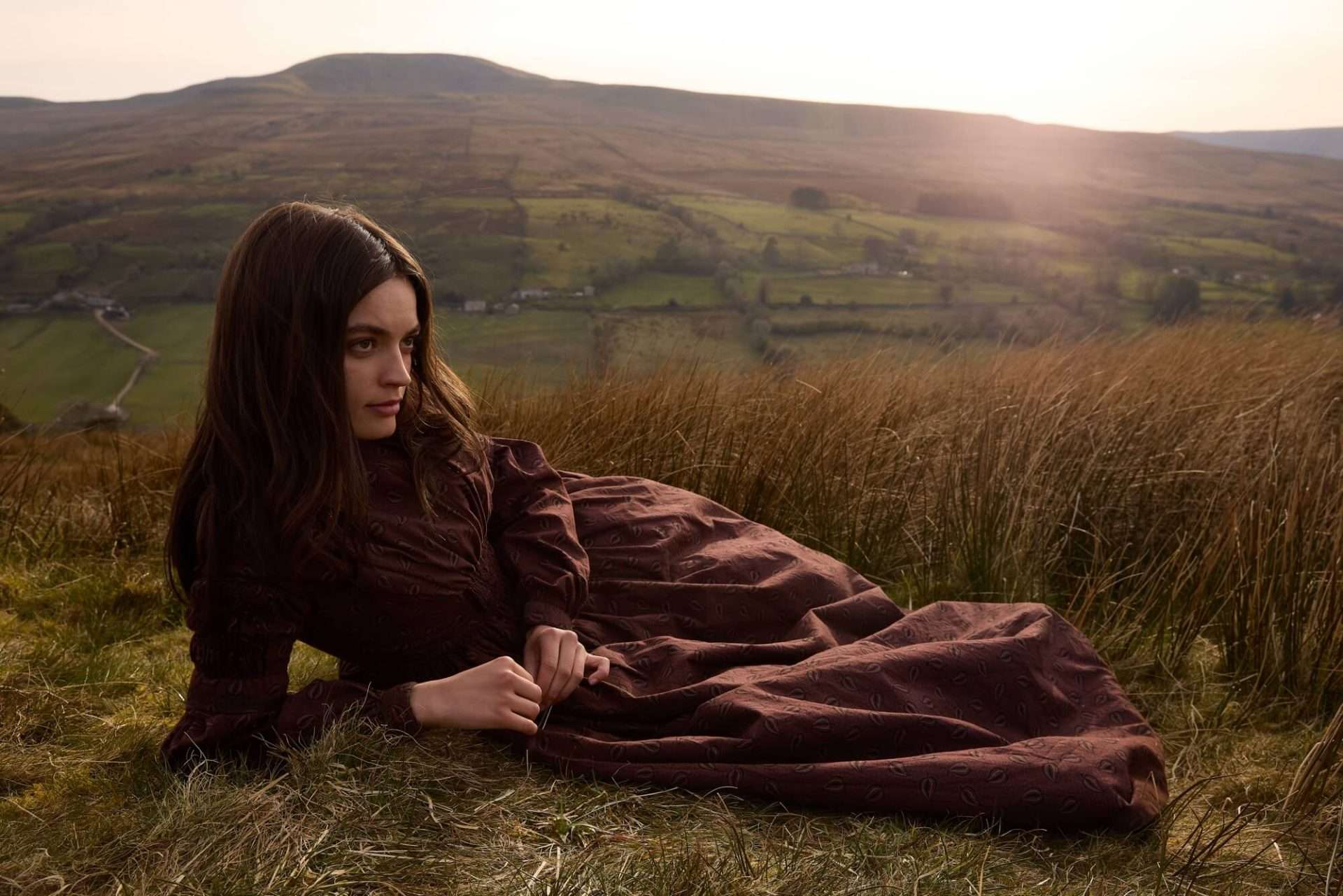
Emily (2022) Movie Ending, Explained:
What inspired Emily to write Wuthering Heights?
Trying to make the best of what her life is in Brussels, Emily forces herself to fit in with people she finds no comfort with. A letter arrives from her hometown. She learns that William has lost his battle with cholera. Back home to say goodbye, Emily finds her brother near William’s grave. The softness and the compassion that Barnwell once possessed, seem to be gone with his dreams of being an artist dying in his own hands. His cruel tone of teasing Emily with what William’s last words may have been, lets her know that the Barnwell that she knew is gone.
Soon after, he himself is bedridden from the very disease that took William’s life. In a vague apology, he almost confesses to Emily. During a sermon, it is as though the bond that the two siblings share, lets Emily know that it is time. Running to his room, she finds his lifeless body in their father’s arms. Reverend Bronte gives her a letter that Barnwell intended for her to have. Within that very letter, Emily finds the note that William had written–begging her to stay and to keep writing. And as she says in the first scene, she puts pen to paper. The first to read Wuthering Heights is Anne. And then Charlotte, who after finishing it, collapses on the floor crying.
Celebrating the success of her first novel, her father says for the first time that he’s proud of her. The look on her face, however–is hollow–or perhaps even of anger. It is her sister Charlotte that craves their father’s approval, not her. And it is of pain, not happiness, that it took Emily to get a novel published to hear the first words of kindness from a father who has always been cold and dismissive towards her.
On her deathbed, when asked how did she write her novel, Emily reminds Charlotte of the stories she used to make up when they were kids. Maybe not unlike the stories of Emily that Charlotte deemed childish. After Emily’s untimely death, Charlotte puts pen to paper, but nothing comes. She remembers Emily and opens the window to let the sounds of nature in. And there she finds the first inspiration behind Emily’s writing–the wilderness that surrounds them.
O’Connor’s Emily didn’t just find her muse in one thing. Cornered by the world, she noticed everything that most people didn’t. In this fictionalized story, Emily is first inspired to let her thoughts run wild by her brother. She finds love, sensuality, and the pain of heartbreak in her relationship with William. She learns of intolerance and rejection through her father’s treatment of the two untamed siblings. And finally, she understands the significance of loss through the death of her loved ones. There are no accounts as to what may have inspired the real Emily Bronte to write her masterpiece. It can be argued that it was all just her imagination in the short, confined life that she had led. But if no one can tell, she can very well be imagined to have lived and felt at least some of the things that her novel speaks of.

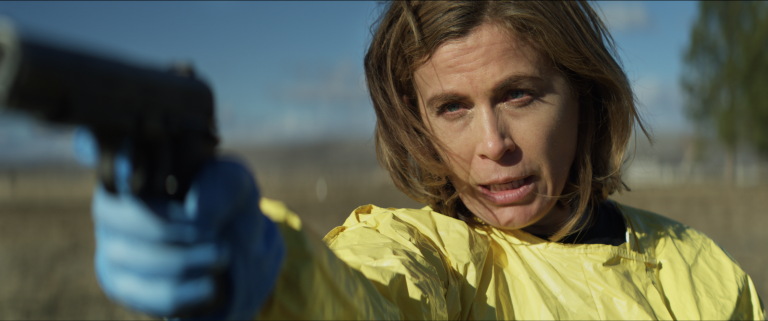
![The Unmaking of A College [2022] Review – An Important Documentary About Preserving And Promoting Education](https://79468c92.delivery.rocketcdn.me/wp-content/uploads/2022/01/The-Unmaking-of-a-College-2022-768x432.jpg)
